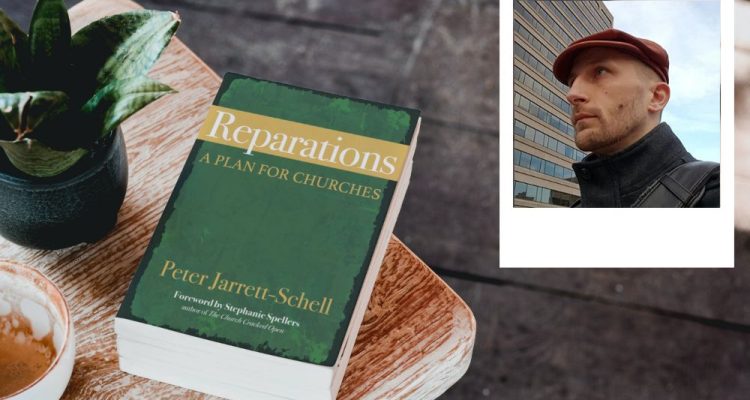Introduction
Six years ago, Georgetown University acknowledged that in 1838 it sold 272 enslaved people of African descent to prop up its failing finances. The university followed that acknowledgment with a project to make restitution and reparation for the sale.
In the wake of Georgetown’s effort, other universities, religious institutions, and municipalities, including four Episcopal dioceses and the Virginia Theological Seminary (VTS), undertook their own reparations initiatives. Last year, congress gave HR 40, The Commission to Study and Develop Reparation Proposals for African-Americans Act, its first serious hearing in decades.
The call for reparations, long derided as an unworkable dream of the extreme fringe, has stepped onto the mainstream debate stage, and from there entered into the realm of practice. The Holy Spirit, it seems, is on the move again, leading God’s people toward repentance. But, as is so often the case, we find ourselves stumbling along the path.
Despite some admirable successes, each of the initiatives mentioned above have fallen short in varying measures. Our Institutions have faltered along the way to repentance. Too often we have become mired in ruts of unambiguously low targets, lapsed promises, and weak accountability.
In the church, the principal culprit of these shortcomings has been a failure of nerve among white Christians. We have flinched from squarely facing the truth of our participation in anti-Black racism. We have turned aside when the road towards restitution seemed overly long, or the cost too high. We have been unwilling to truly humble ourselves and let the Black Community itself teach us what reparations mean. The cost of these failures is measured in disappointment, frustration, and broken trust, for everyone involved. These failings have described us as white Christians.
But they don’t have to define us. We can still choose to face the whole truth, to walk the road of restitution from beginning to end, to pay the full price, to learn from the communities we have wronged. We can open our imaginations to the wider creative possibilities of restitution that God lays before us. We can still choose redemption. Nothing less than the soul and integrity of the Episcopal Church is at stake.
The book you’re about to read aims to provide spiritual resources and practical tools for individual white Christians as well as predominantly white congregations, dioceses, and other religious institutions who are poised to seize this crucial moment.
Already public ardor for reparations has begun to cool. But it isn’t cold yet. Now is the time for our communities to kindle the embers of the Holy Spirit, and carry them forward along the path toward repentance, reparation, and reconciliation.
This book is an argument in favor of a bold risk: that the Episcopal Church (and any other white denominations who might be reading over our shoulders) should transfer 14.7% of their total assets (including real estate) to local Black- and brown-led organizations working for economic empowerment in their communities.
This debt is owed for the benefit the church has received from four hundred years of participation in anti-Black racism. It should be paid, not only as a matter of moral imperative, but also for its potential to help break the Episcopal Church from the gilded shackles of white supremacy that have defined our history. Until reparations are paid, they will define our future as well.
I want to think together about what that process might look like, about how you can take up the work in your local community, and about the surprising, life-filled possibilities we might encounter along the way.
Taking the ongoing, and still-developing, efforts of the Reparations Task Force of the Episcopal Diocese of Washington (EDOW) as a working example, I want to lay out stages of a potential process toward reparations. I’m going to highlight the many pitfalls and opportunities along the way. Congregations and dioceses can use these stages as a template for their own journeys.
I won’t, and can’t, claim the authority of an expert trail guide. But I can offer the simple solidarity of a fellow traveler walking a difficult road. Don’t fret though. We’ll have some very capable guides to lead the way.
After doing a bit of preparatory work, stretching our imaginations for what follows, we’ll get to the core of the book, basic framework for a six-stage process toward making reparation. This process has been shaped through interviews with nine seasoned veterans working in the field of racial justice and reparations. They’ll share with us their insight, unique perspectives and wisdom, helping us find a way forward along a road that has not yet been charted.
Six of these nine trail guides are Black. This is appropriate and essential. Those who know the impact of anti-Black racism directly, in their own lives, are the ones most competent and capable of helping us find the way past it. Having said that, I have included three white voices as well. For those of us who are white, finding examples of responsible engagement in this work is important. It gives a means to imagine what our own walk along this path might look like.
This journey called reparations is, without a doubt, a difficult and dangerous proposition, that puts the future of our denomination in question. But we followed a guy who said, “Whoever would save their life will lose it, and those who lose their life for my sake will find it.” I think maybe it’s time we took him at his word.
Excerpt from Peter Jarrett-Schell’s Reparations: A Plan for Churches, Church Publishing Incorporated, Published February 2023, Used by permission.

